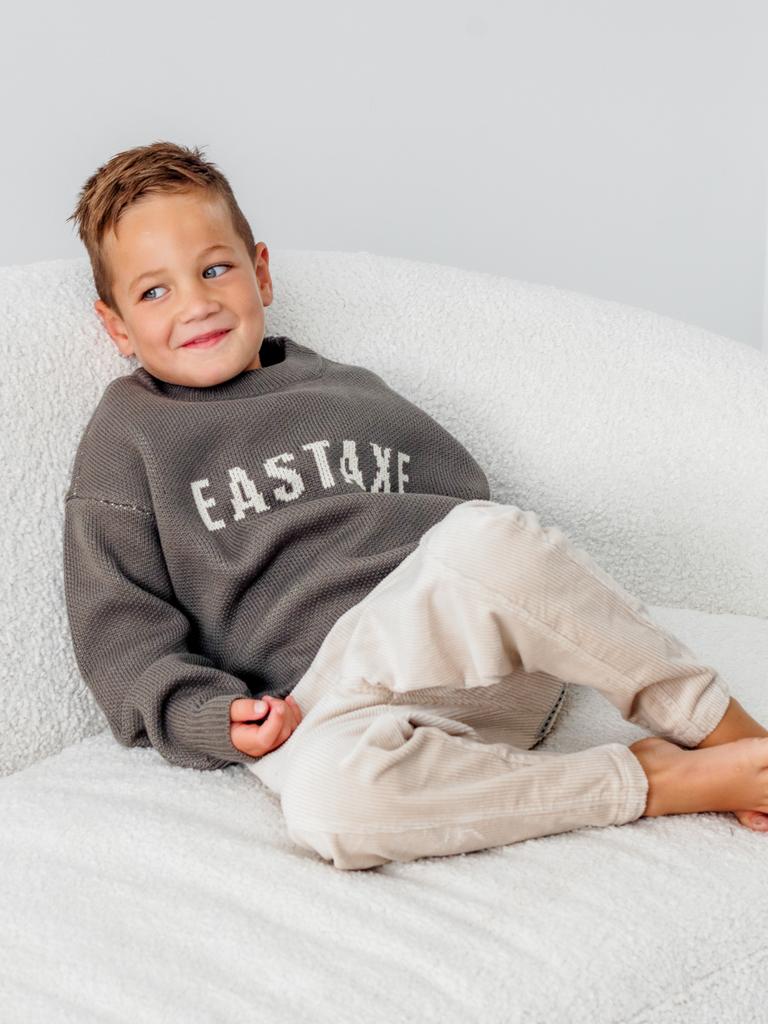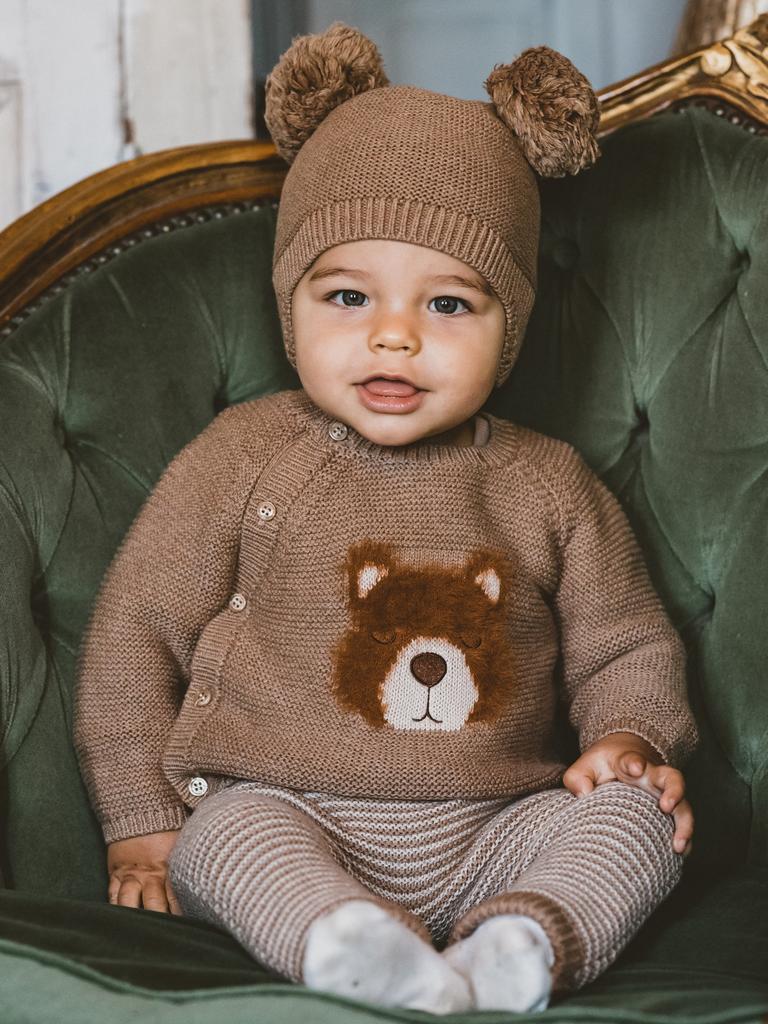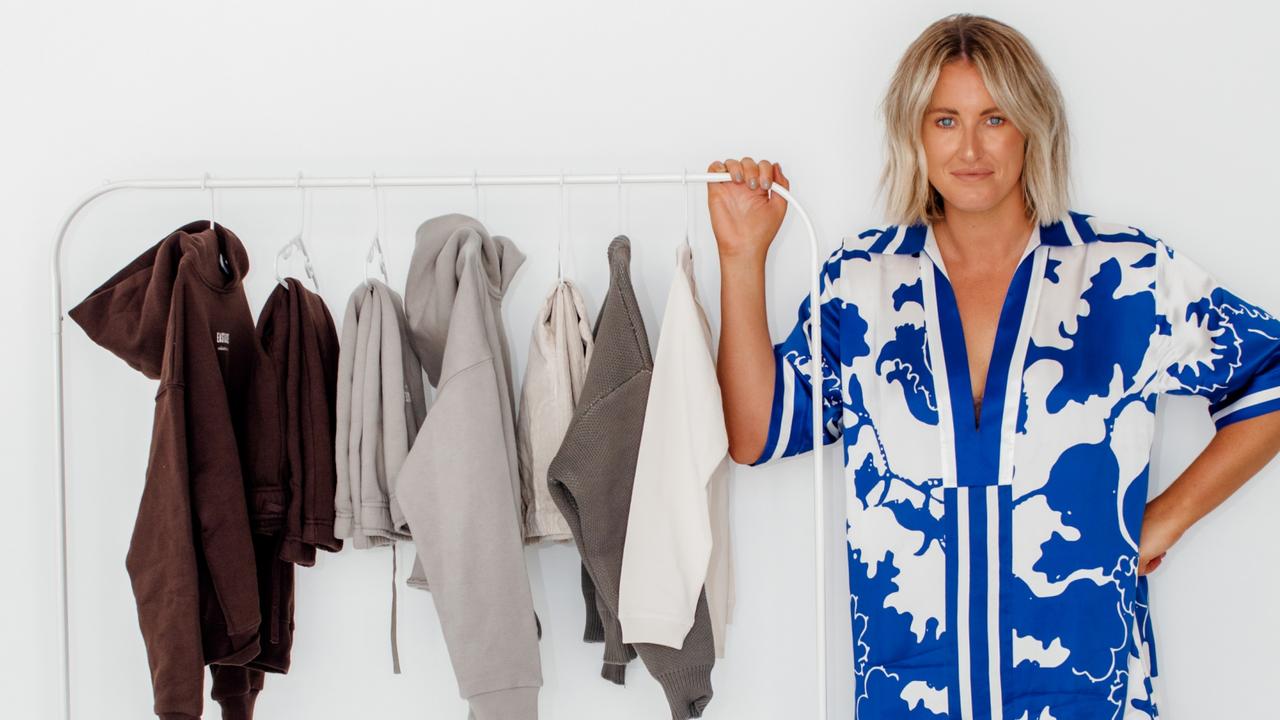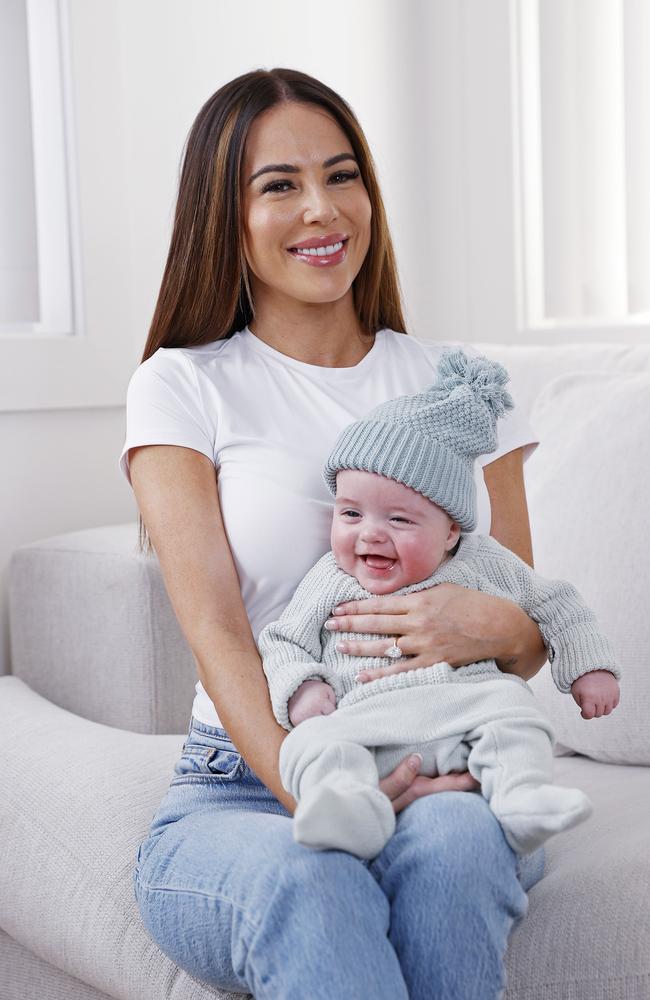Australia’s designer baby fashion market booms into a billion-dollar industry
Savvy parents are no longer settling for hand-me-downs and are pouring all of their spare cash into what their children wear — and they’re making a motza.
Companies
Don't miss out on the headlines from Companies. Followed categories will be added to My News.
Exclusive: Kids clothing is the new black.
Fashion-conscious parents are no longer settling for hand-me-downs and are pouring all of their spare cash into the clothes their children wear — spawning a $3.5 billion industry, that is growing rapidly.
The baby- and toddler-wear market has become so lucrative, luxury brands are also cashing in — from Louis Vuitton and Burberry to Dior and Gucci.
According to the latest infants and children’s clothing industry report by IBISWorld, the Australian market for kids’ clothing is expected to grow by 3.2 per cent this year.
In the past decade, it has expanded by nearly 18 per cent, with most of the gains coming during the pandemic, despite the financial headwinds many households encountered.
Social media has fuelled the trend and some parents are revelling in posing in matching outfits with their children.


IBISWorld industry analyst Kayla Wheeler said couples are also increasingly waiting to be financially secure before having children, so they’re better placed to fork out on branded clothing.
“Parents are becoming style conscious and want their kids dressed in similar quality as to what they are. A lot of luxury houses have taken advantage of this shifting behaviour,” Ms Wheeler said.
“They are introducing miniature versions of adult look, which they would’ve traditionally had only for older people, but have now expanded their product lines which has really appealed to high income earners.”
Vogue’s style editor Annie Brown said in the past five years, designer brands have begun creating collections which align with “adult trends”.
“Luxury brands have long had a children’s offering and recently Australian fashion designers have joined such as Rebecca Vallance, with her recent Enfant capsule collection,” Ms Brown said.
“Aje have created mini versions of their signature silhouettes, playing into the celebrity-led trend for ‘mummy and me’ dressing — something I expect we will see more of.”

Sammy Frizell, who is expecting her third son with NRL second rower Tyson Frizell in August, founded Australian boyswear brand Eastaxe after she found a gap in the market for “affordable but unique” clothing for boys.
“I have noticed not just mothers, but also fathers sacrifice their own passion or enjoyment for fashion to make sure their kids are dressed in the best clothing,” the mother of two said.
“Last year we launched our matching father and son boardshort collection for Fathers Day and it was a huge hit with our customers.”
Former Married At First Sight star KC Osborne said Best & Less has been one of her “affordable” brand choices, especially for premature babies after she welcomed her child Brooklyn six weeks early.
“Having a baby is so expensive. I didn’t realise how quickly babies grow out of clothes and this made me even more aware of the baby fashion boom,” she said.

Founder of designer childrens’ label Minihaha & Hiawatha Joanne Sackville said parents were prioritising purchases to ensure their kids were wearing the latest.
“The one thing that seems to have remained constant is the increased demand from new mums and grandmothers looking for the next best trend for their baby girl or boy,” Mrs Sackville said.
“It is definitely a very strong part of the clothing market with parents often foregoing their own desires to be able to dress their mini-me’s up.
“There’s also definitely a group of mothers dressing their kids in top designer brand clothing, more the Instagram influencer mums.”
Beyond the luxury brands, independent brands have enjoyed significant growth in the exploding market — both domestically and internationally, where the trend is consistent.
More Coverage
Originally published as Australia’s designer baby fashion market booms into a billion-dollar industry









